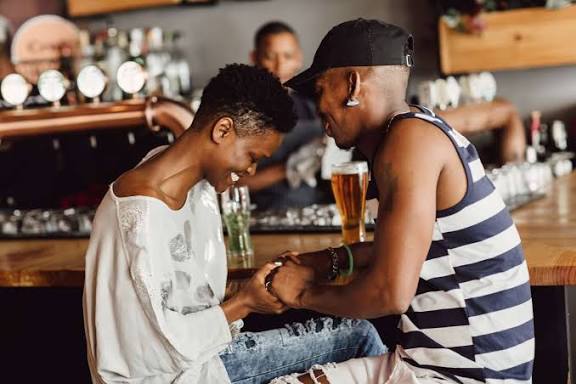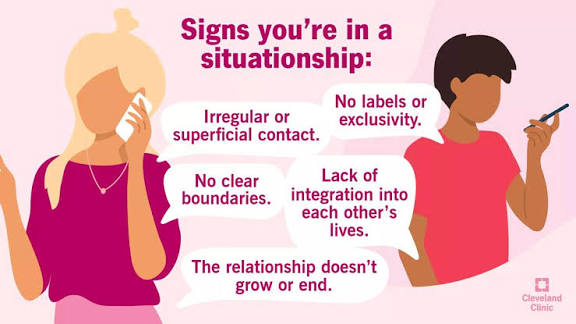Situationship Era: Dating, Celibacy, and Rizz in African Cities

The present generation of young Africans is caught up in the juxtaposition of a hyper globalized digital culture and firmly traditional social expectations, which has fundamentally changed how they approach love and commitment.
The formal courtship of traditional knocking is swiftly being taken over by the ambiguity of the Situationship, while the old pressure to couple up faces an unexpected antidote: celibacy.
In modern life, increasingly fast-paced and complex, African Gen Z prioritizes emotional intelligence, authenticity, and self-discovery over relationship milestones that no longer suit them.
The Digital Shift: From Formal Knocks to Ghosting
The digital landscape has completely rewritten the rules of African courtship. While previous generations relied on introductions via family friends, better known as aunties, or church, Gen Z employs dating apps, DMs, and social media to initiate and navigate romance. The smartphone is no longer just a tool of communication; it's a primary gatekeeper to the dating pool.
This digital shift has greatly increased choice and speed but introduced new forms of anxiety. From formal, intentional meetings, courtship has shifted to quick messaging and profile scrolling. Ease of access has normalized casual dating and the phenomenon of ghosting, the partner disappearing without explanation, leaving emotional confusion in its wake.
The traditional value of perseverance and commitment, once reinforced by community scrutiny, is often lost in the noise of endless digital options. Furthermore, the emphasis on polished profiles often leads to superficiality, reducing potential partners to a quick swipe and creating a fear of vulnerability that is often masked by digital bravado.
Emotional Intelligence over Commitment: The Rise of a Situationship
Gen Z enters the dating pool highly attuned to mental health and personal boundaries. They've watched older generations struggle through transactional, often unhappy marriage unions often driven by necessity, family pressure, or financial stability rather than an actual connection. They are determined to forge their own different path. This critical observation, along with global conversations on wellness, has culminated in the rise of the Situationship.
A situationship is not some sort of commitment-free fling; it is an arrangement where closeness, emotional intimacy, and sometimes sexual contact are present, but the relationship is deliberately left undefined to prioritize personal growth and career focus. The mantra is often "do you": prioritize self-discovery, financial stability, and autonomy over the pressure to settle down. With the high cost of living in urban centers like Nairobi and Lagos, financial instability also plays a key role, making formal marriage a deferred and high-stakes financial goal.

Commitment is not a life necessity but an earned high-stakes choice. The result is a focus on EQ. Spouses are valued more and more for their communication skills, their willingness to attend therapy, and for their contribution to self-betterment, rather than their adherence to traditional social milestones. Discussed in the context of mental health, it is becoming a normal and even attractive component at the early stages of formation, signaling a commitment to emotional maturity.
The Celibacy Trend: A Rebellion Against Toxic Culture
But perhaps the most surprising and powerful trend is the rise of voluntary celibacy - abstaining from sexual activity - among young Africans. The decision is rarely purely religious for them; it is also therapeutic and political. Surveys involving young Black singles in the diaspora show that a considerable percentage are currently practicing celibacy, citing personal growth and self-discovery as main drivers into this decision, which is being driven by young women.
Gen Z is opting out of a perceived "toxic dating culture" defined by manipulation, inconsistency, and emotional dishonesty. By choosing celibacy, they report improved mental and emotional well-being after taking the plunge. It is an act of empowerment and self-reclamation-one that asserts control over one's body and emotional narrative in a culture that often pressures young women to conform to certain sexual expectations or stereotypes.
Social Insight
Navigate the Rhythms of African Communities
Bold Conversations. Real Impact. True Narratives.
All the same, this trend reflects a deep prioritization of inner peace over external validation, proving that for this generation, self-care sometimes means choosing abstinence to build emotional resilience.
The Secret Handshake of Modern Romance
The generational shift is encoded in the language of modern dating. These terms serve as a shared, expedient lexicon to swiftly denote complex relationship dynamics and to form a sort of cultural secret handshake.
The most popular word is "rizz," short for charisma, describing the natural ability to charm, attract, or flirt. Mastery of this slang indicates cultural fluency. Other words like "red flag" (a warning sign about a person's behavior) and "delulu" (delusional, often used for someone holding unrealistic expectations) quickly label and process romantic experiences.

This rapid-fire slang creates a protective layer of shared humor and understanding among peers. It lets Gen Z bond and navigate the chaotic waters of digital dating by making light of emotional labor and communicating boundaries instantly-a far cry from the slow, formal language of the courtship of yore.
Search for Authentic Connection
In all, African Gen Z's approach to relationships is a messy, beautiful reflection of its search for authenticity in a hybrid world. They are unafraid to be single, to demand emotional honesty, or to place their own growth above that timeline.
They reject the rigid structures of yesteryear for more flexible, emotionally intelligent models in service of making sure that when they do commit, it is a choice premised on knowledge of themselves, not on the dictates of society. The ultimate aim is never to do away with commitment but to make it well worth it and deeply aligned with one's personal truth. This generation is not simply dating differently; they are loving with intention.
Recommended Articles
Alarming Trend: 1 in 25 Gen Z Addicted to Nicotine Pouches Despite European Ban

Nicotine pouch use has dramatically increased among young people in the UK, driven by aggressive marketing and celebrity...
FNAF 2 Shocks Industry: Record-Breaking Box Office Despite Critics' Scorn!

"Five Nights at Freddy's 2" has achieved remarkable box office success, surpassing expectations and attracting strong tu...
You may also like...
When Sacred Calendars Align: What a Rare Religious Overlap Can Teach Us

As Lent, Ramadan, and the Lunar calendar converge in February 2026, this short piece explores religious tolerance, commu...
Arsenal Under Fire: Arteta Defiantly Rejects 'Bottlers' Label Amid Title Race Nerves!

Mikel Arteta vehemently denies accusations of Arsenal being "bottlers" following a stumble against Wolves, which handed ...
Sensational Transfer Buzz: Casemiro Linked with Messi or Ronaldo Reunion Post-Man Utd Exit!

The latest transfer window sees major shifts as Manchester United's Casemiro draws interest from Inter Miami and Al Nass...
WBD Deal Heats Up: Netflix Co-CEO Fights for Takeover Amid DOJ Approval Claims!

Netflix co-CEO Ted Sarandos is vigorously advocating for the company's $83 billion acquisition of Warner Bros. Discovery...
KPop Demon Hunters' Stars and Songwriters Celebrate Lunar New Year Success!

Brooks Brothers and Gold House celebrated Lunar New Year with a celebrity-filled dinner in Beverly Hills, featuring rema...
Life-Saving Breakthrough: New US-Backed HIV Injection to Reach Thousands in Zimbabwe

The United States is backing a new twice-yearly HIV prevention injection, lenacapavir (LEN), for 271,000 people in Zimba...
OpenAI's Moral Crossroads: Nearly Tipped Off Police About School Shooter Threat Months Ago
ChatGPT-maker OpenAI disclosed it had identified Jesse Van Rootselaar's account for violent activities last year, prior ...
MTN Nigeria's Market Soars: Stock Hits Record High Post $6.2B Deal

MTN Nigeria's shares surged to a record high following MTN Group's $6.2 billion acquisition of IHS Towers. This strategi...
